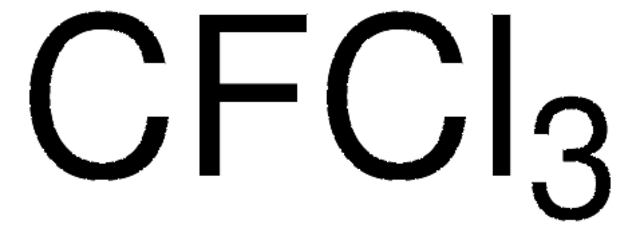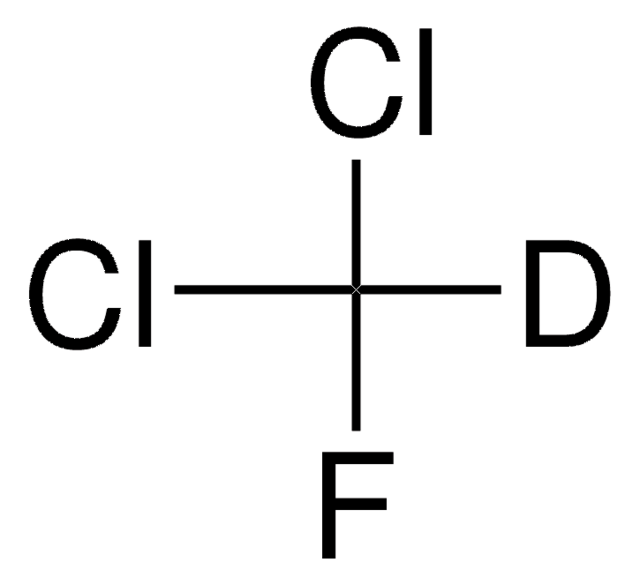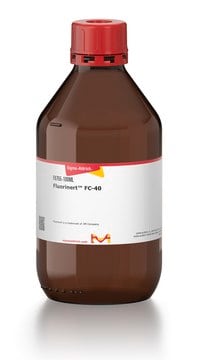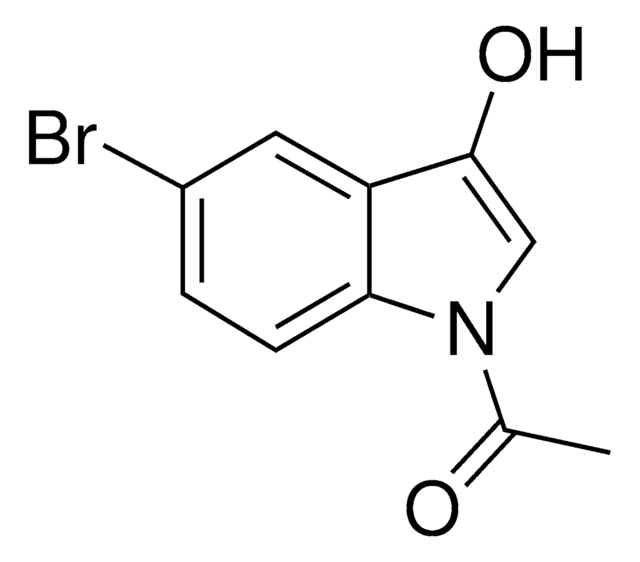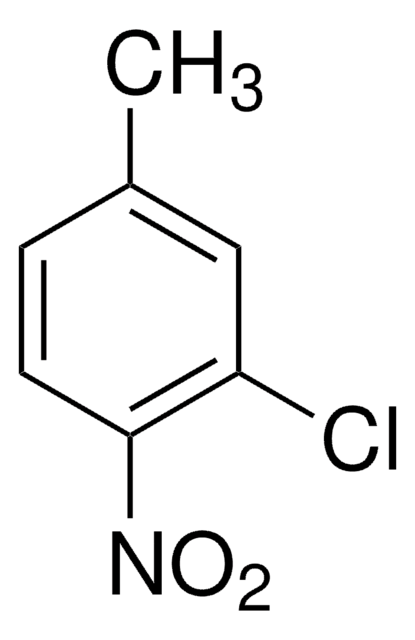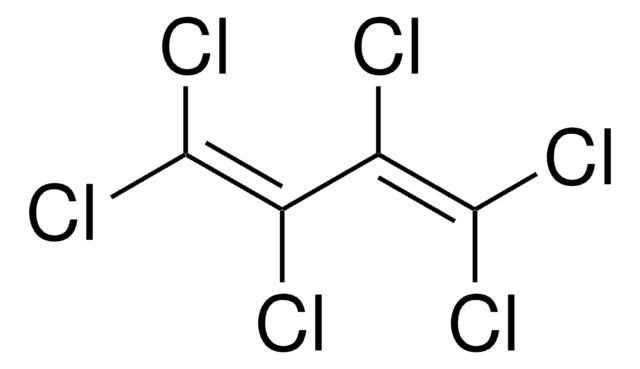270369
1,1,2-Trichloro-1,2,2-trifluoroethane
HPLC grade, ≥99.9%
Sinónimos:
1,1,2-Trichloro-1,2,2-trifluoroethane, 1,1,2-Trichloro-trifluoroethane, Genetron® 113
About This Item
Productos recomendados
grado
HPLC grade
densidad de vapor
6.5 (vs air)
presión de vapor
5.5 psi ( 20 °C)
Análisis
≥99.9%
formulario
liquid
temp. de autoignición
1256 °F
técnicas
HPLC: suitable
impurezas
<0.010% water
residuo de evap.
<0.0005%
índice de refracción
n20/D 1.358 (lit.)
bp
47-48 °C (lit.)
mp
−35 °C (lit.)
densidad
1.57 g/mL at 25 °C (lit.)
λ
H2O reference
Absorción UV
λ: 231 nm Amax: 1.00
λ: 240 nm Amax: 0.20
λ: 260-400 nm Amax: 0.01
cadena SMILES
FC(F)(Cl)C(F)(Cl)Cl
InChI
1S/C2Cl3F3/c3-1(4,6)2(5,7)8
Clave InChI
AJDIZQLSFPQPEY-UHFFFAOYSA-N
¿Está buscando productos similares? Visita Guía de comparación de productos
Envase
Información legal
Palabra de señalización
Warning
Frases de peligro
Consejos de prudencia
Clasificaciones de peligro
Aquatic Chronic 2 - Eye Irrit. 2 - Ozone 1
Código de clase de almacenamiento
10 - Combustible liquids
Clase de riesgo para el agua (WGK)
WGK 2
Punto de inflamabilidad (°F)
383.0 °F
Punto de inflamabilidad (°C)
195 °C
Equipo de protección personal
Eyeshields, Gloves, multi-purpose combination respirator cartridge (US)
Certificados de análisis (COA)
Busque Certificados de análisis (COA) introduciendo el número de lote del producto. Los números de lote se encuentran en la etiqueta del producto después de las palabras «Lot» o «Batch»
¿Ya tiene este producto?
Encuentre la documentación para los productos que ha comprado recientemente en la Biblioteca de documentos.
Nuestro equipo de científicos tiene experiencia en todas las áreas de investigación: Ciencias de la vida, Ciencia de los materiales, Síntesis química, Cromatografía, Analítica y muchas otras.
Póngase en contacto con el Servicio técnico